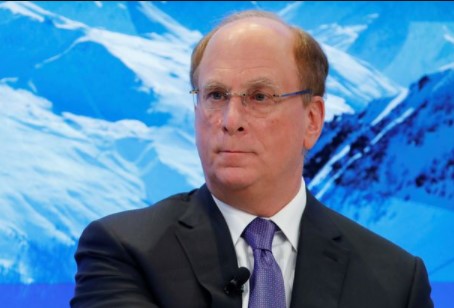Energy News Beat Publishers Note: From #hottakeoftheday – the Wald Wednesday edition is excellent. Yesterday we ran a story on China’s creation of a carbon credit scheme (referring to China’s carbon credits as a scheme). We have been covering the carbon credits as a scam for the large polluters to be “Green” It is about accountability, not profits. Ellen and DRW bring up great points about the use of Carbon Credits in a positive light. Nice job Ellen Wald and DRW.
Do not forget to sign up at #hottakeoftheday for DRW updates.
BlackRock is getting involved in financial environmental engineering. In his annual letter to the boards of corporations, CEO Larry Fink asked companies “to disclose a plan for how their business model will be compatible with a net zero economy.” Companies whose progress towards “net zero” is deemed insufficient according to BlackRock’s standards will face consequences. The letter raises suspicions about BlackRock’s real motives when it insists that companies create and disclose their plans to implement carbon neutral strategies. The letter indicates that creating an image of carbon neutrality is going to be a huge business in years to come, and Blackrock will be interested in that business.
This letter has the potential to truly influence corporate America, because Blackrock is the largest investment manager in the world with $8 trillion in assets under management. For companies in BlackRock’s index funds, BlackRock representatives will vote against the management of these corporates and for companies in BlackRock’s actively managed funds, BlackRock will move towards divesting their shares. Because of BlackRock’s heft, companies will comply.
The easiest way—and for many companies the only way—to approach carbon neutrality is to purchase carbon credits or energy offsets. BlackRock, which prides itself on already achieving the sustainability goals it set for itself, utilizes this strategy in a significant way. It purchases offsets or “environmental attribute credits” to account for carbon emissions related to travel, electricity usage and other areas. Of interest, BlackRock pays for its carbon offsets via a grant from the company’s own charitable trust.
If companies report their sustainability compliance to BlackRock and BlackRock thus knows exactly what corporations are doing to move towards carbon neutrality, then BlackRock will be able to develop a good barometer for the growth of the carbon offset industry. This is a huge advantage in information in a growing portion of the economy. BlackRock could make its own strategic investments based on this information.
The world’s second richest person today is Elon Musk, and he holds that title in part because his company sells carbon credits. Tesla is an electric vehicle company with a crucial carbon sales component. In fact, Tesla’s net income in 2020 was $721 million, while $1.6 billion of revenue came from the sale of carbon credits to other carmakers. These carmakers are required in 11 states to purchase these credits from Tesla and others if they do not produce enough electric vehicles as a percentage of their fleets in the coming years. Without the revenue from the sale of carbon credits, Tesla would have posted a loss in 2020 and Musk’s net worth might not be so astronomical.
Tesla’s carbon credit revenue happens to be fueled by state regulations, but it is possible that we could see national regulations along similar lines under the Biden administration. BlackRock certainly seems to be forging ahead of government policy with its own “net zero” ultimatum to companies. As have to wonder what the face of the carbon credit industry will look like tomorrow, indications are that carbon credits have a promising future as a business opportunity in America,
Take this example from a legacy oil giant to see where the future of carbon credits may be. ExxonMobil just announced that it will spend $3 billion over the next five years on investments in carbon capture and storage projects around the world and in other projects designed to lower emissions. Exxon is no stranger to the carbon credit business. It has used credits it gets from capturing carbon dioxide at its Shute Creek Treating Facility in southwestern Wyoming to claim hundreds of millions of dollars in tax credits from the IRS since 2008. With further investments in the carbon capture business, Exxon may be looking to use those credits to offset its own emissions, or to sell these credits to other businesses looking for offsets.
State governments have created a market for carbon offsets and credits. BlackRock knows this and recognizes the value in this market. The federal government may follow suit. Since the carbon credit market is already being tapped by suppliers like Tesla, why shouldn’t ExxonMobil and others join the party?
Do not forget to sign up at #hottakeoftheday for DRW updates.

